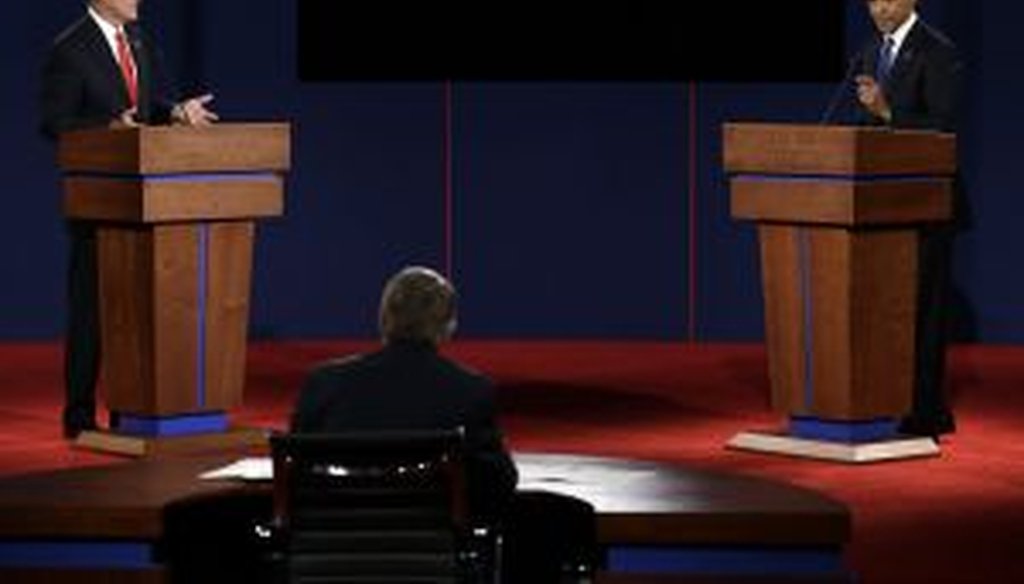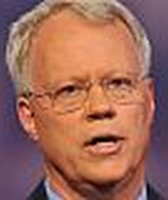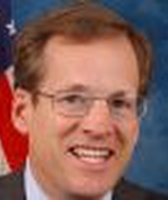Get PolitiFact in your inbox.

Barack Obama and Mitt Romney debated in Denver on Oct. 3, 2012
The economy has been the central issue in this presidential race.
President Barack Obama and Republican presidential nominee Mitt Romney have divergent visions about how to help create more jobs, sell more American goods overseas and make the nation more energy-independent.
Along the way, both men have made claims that caused the Truth-O-Meter to sway in all directions.
Below are some abbreviated versions of fact checks about the candidates’ statements during the campaign. Look for the complete fact checks at the PolitiFact online sites.
Readers can comment on our Truth-O-Meter rulings at our Facebook page: www.facebook.com/politifact.georgia?fref=ts. And they can follow us on Twitter at: PolitiFactGA.
Obama: "We've doubled our use of renewable energy."
Obama has made this claim a few times, including in his acceptance speech at the Democratic National Convention in Charlotte.
PolitiFact checked information from the Energy Information Administration, a federal agency that collects energy data. The problem for Obama is not that the trend is inaccurate, but that he used the wrong words to describe it.
If you look at all types of electricity generation from renewables, the increase isn’t double between 2008 and 2011 -- it’s 55 percent.
"Taken literally, the quoted statement is imprecise and probably misleading," said Joel Darmstadter, a senior fellow at Resources for the Future, an energy-policy think tank.
PolitiFact rated Obama’s statement as Mostly False.
Romney: "Regulations have quadrupled. The rate of regulations quadrupled under this president."
During the town hall presidential debate in New York, Romney accused Obama of strangling small businesses with too much regulation.
Romney was basing that on a study by the Heritage Foundation, a conservative think tank, but he did not include important caveats about how the study was conducted. The Heritage report doesn’t account for all regulations. It only looks at regulations that Heritage researchers said would "limit activity or mandate activity by the private sector."
The actual data on regulations show Obama's rate of regulations is no different from the past 18 years.
This was a broad claim describing its own evidence inaccurately. False.
Obama: Says Romney was clear that he "would not provide government assistance to the U.S. auto companies, even if they went through bankruptcy."
In their final debate before the election, Obama repeated his charge against Romney. In a spirited back and forth, Romney insisted the president was wrong.
Romney previously used the term "post-bankruptcy financing," which can have two meanings. It can refer to money used during bankruptcy and money used right afterward. The distinction has great practical significance in this case because without the loans in the middle of a bankruptcy, there might be no automakers to lend to on the other side.
We can't know for sure which meaning Romney had in mind. Obama, however, said Romney would offer no government aid even if the carmakers went through bankruptcy.
Romney’s words were vague and quite limited in number, but he did speak of a government guarantee, and that would be the case whether he meant for loans during or after bankruptcy.
PolitiFact rated Obama's statement Mostly False.
Romney: "The median income in this country has declined 10 percent in the last four years."
During one Republican presidential debate in Tampa, Romney offered an ominous statistic about how family finances have declined since the start of the Great Recession.
"[T]he median income in this country has declined 10 percent in the last four years," he said. "We're still a great nation, but a great nation doesn't have so many people suffering."
Between 2007 and 2010, the median income declined by 6.3 percent, while between 2006 and 2010, the median declined by 5.1 percent, according to the U.S. Census Bureau. The Romney camp explained that it had taken the statistic from a report published by a private agency, Sentier Research, based on other Census Bureau data. Last year, Sentier initiated a new statistic -- a "household income index" that tracks upticks and downticks in median income on a monthly basis, rather than annually.
The numbers Romney used are outdated. Over the most recent four months, the statistics show median income rebounding, making the decline since the start of the last recession smaller than Romney said it was. On balance, PolitiFact rated the statement Half True.
Obama: "After a decade of decline, this country created over half a million manufacturing jobs in the last 2 1/2 years."
During his acceptance speech at the Democratic National Convention, Obama touted recent growth in manufacturing jobs.
Because of the wording of his claim, PolitiFact rated whether the numbers are right, not whether Obama's policies were instrumental. To check the numbers, PolitiFact turned to data from the Bureau of Labor Statistics, the federal government’s official source for employment numbers. We used seasonally adjusted statistics for manufacturing jobs.
During the period Obama chose -- from January 2010 to July 2012 -- manufacturing jobs began to rise again, by 532,000. That’s "over half a million manufacturing jobs," as Obama put it.
The rise in manufacturing jobs that Obama is referring to may be modest compared with the prior decade’s decline, but he has described the numbers carefully. PolitiFact rated his statement True.
Romney: "We’re now spending 42 percent of our economy on government."
During the first presidential debate in Denver, Romney warned that the U.S. risks harming its economy if government spending continues at its current pace.
The Office of Management and Budget produces a table every year that tracks total government expenditures as a percentage of gross domestic product. Since Fiscal Year 2007, the rate was never higher than 37 percent.
But the Organization of Economic Cooperation and Development -- a group that includes most of the world’s advanced industrialized countries -- found that government expenditures accounted for 42 percent of the U.S. economy in 2009 (compared with 45.8 percent for Spain).
Depending on which data set you use, Romney’s numbers are either correct or close. On balance, PolitiFact rated Romney’s statement Mostly True.
Obama: "Right now, American oil production is the highest that it’s been in eight years."
Obama made this claim during his 2012 State of the Union address.
Since Obama said "oil production," PolitiFact looked at crude oil extracted from U.S. territory, rather than natural gas or other petroleum products, using data from the Energy Information Administration, the federal government’s official office for energy statistics.
In 2003, the U.S. produced 2,073,453,000 barrels of oil. In 2010, the most recent year available when Obama made the claim, the U.S. produced 1,998,137,000 barrels of oil. U.S. oil production was not as high between 2004 and 2009.
Obama’s phrasing suggests that he thinks the administration’s policies have played a role, saying, for instance, that "over the last three years, we’ve opened millions of new acres for oil and gas exploration."
We think he may have overstated his administration’s role in achieving that, but not wildly so. PolitiFact rated the claim Mostly True.
Romney: Under the "Obama economy ... utility bills are higher."
In his acceptance speech at the Republican National Convention in Tampa, Romney sought to show how the economy has stumbled under Obama.
"In the richest country in the history of the world, this Obama economy has crushed the middle class," he said. "Family income has fallen by $4,000, but health insurance premiums are higher, food prices are higher, utility bills are higher and gasoline prices have doubled."
Under Obama, electricity, heating oil, propane and water-sewer-trash prices did rise, as Romney indicated. But natural gas and telephone prices fell.
It's important to note the phenomenon is not unique to Obama. In the comparable three years of the Bush presidency, three of the six utility prices also rose.
On balance, we rated Romney’s claim Half True.
Our Sources
See attached articles.

















































